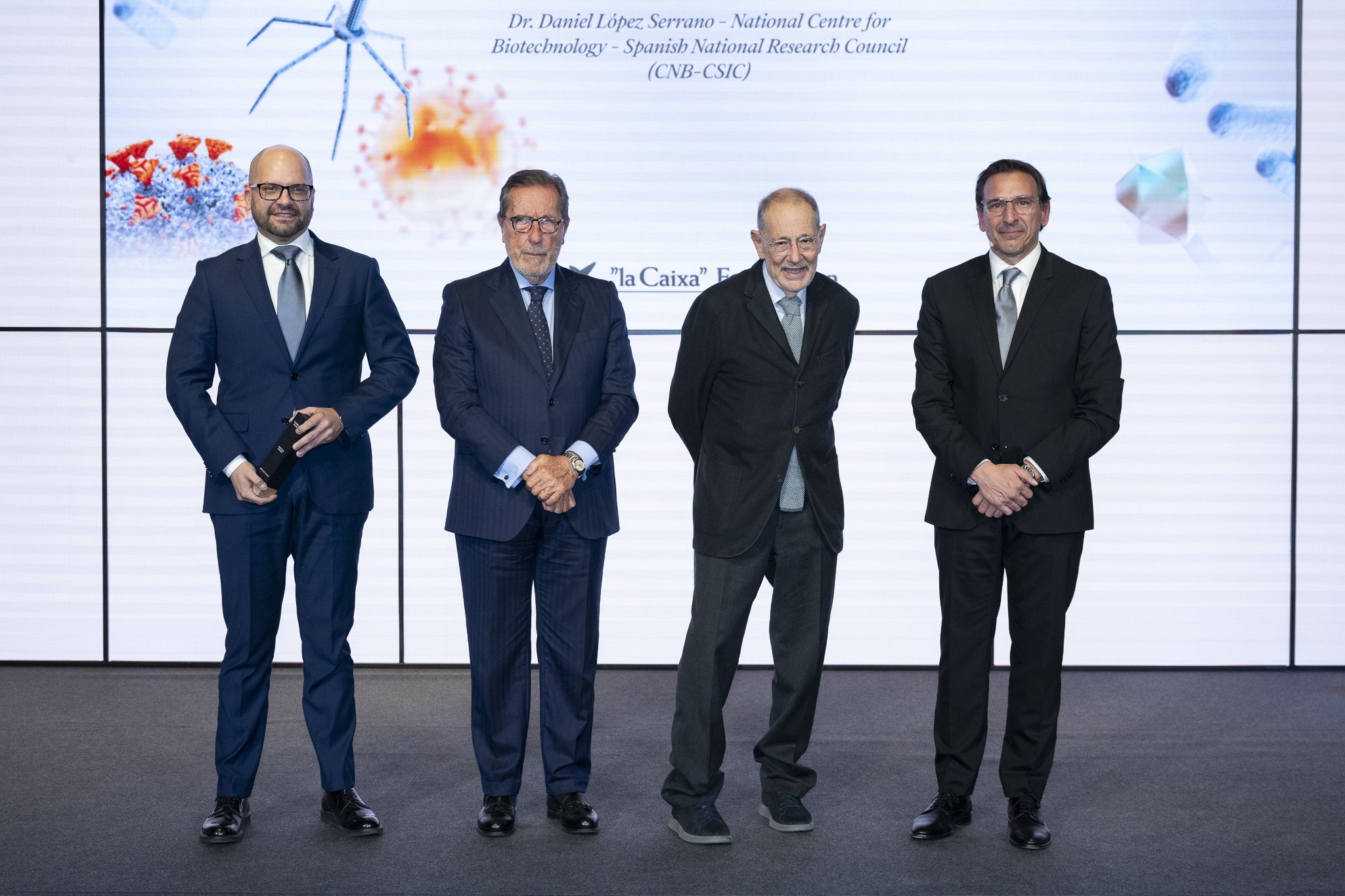Nuevas terapias para combatir las resistencias bacterianas y Microscopía avanzada para descifrar los mecanismos inmunitarios implicados en la muerte celular inmunogénica
El grupo dirigido por Daniel López en el departamento de Biotecnología Microbiana del CNB-CSIC desarrollará una “Nueva terapia para desactivar la resistencia a los antibióticos de las superbacterias”.

En Europa mueren cada año alrededor de 33.000 personas como consecuencia directa de infecciones provocadas por bacterias resistentes a los antibióticos. La resistencia antimicrobiana, es decir, la capacidad que tienen las bacterias de adaptarse y hacerse resistentes a los medicamentos que usamos para combatirlas, se ha convertido en una de las mayores amenazas para la salud pública global. De no frenar su aumento, se espera que para 2050 se alcancen cifras que ronden los 10 millones de personas fallecidas por infecciones. Descubrir nuevos antibióticos eficaces contra estos microorganismos supone un desafío para la industria farmacéutica: la investigación puede durar décadas sin llegar a obtener resultados, lo que desincentiva la inversión de recursos.
El proyecto, financiado con casi medio millón de euros pretende aportar una solución a esta situación. En estudios previos, el equipo demostró la existencia de un proceso celular, hasta entonces desconocido, esencial para la supervivencia bacteriana durante las infecciones que es universal para todas las especies bacterianas. En el presente proyecto el equipo caracterizará este proceso, que tiene lugar en las membranas celulares. Se testará una serie de pequeñas moléculas que son capaces de desactivar la resistencia a los antibióticos convencionales de las superbacterias, pero inocuas para los seres humanos. Estas moléculas permitirán que los antibióticos ya existentes recuperen su actividad frente a las bacterias resistentes, lo que hará posible volver a ponerlos en circulación sin necesidad de desarrollar otros nuevos.
Además, el grupo de investigación de José María Valpuesta participa en el consorcio para desarrollar el proyecto “Microscopía avanzada para descifrar la activación de la respuesta inmunitaria mediada por la muerte celular inmunogénica” dirigido por Francisco Sánchez Madrid de la Universidad Autónoma de Madrid en el que también participa el grupo de Noa B. Martín-Cófreces, perteneciente a la Fundación Investigación Biomédica del Hospital Universitario de La Princesa.
Las amenazas a nuestra salud como son virus, bacterias y células cancerosas liberan una serie de moléculas que alertan al sistema inmunitario y activan una respuesta. Estas moléculas a veces van encapsuladas en vesículas extracelulares, una especie de pequeñas esferas que contienen proteínas, lípidos y material genético. Las células dendríticas, un tipo de células inmunitarias, están especializadas en detectar y generar una respuesta frente a estos componentes extraños. Este proceso por el que una célula cancerosa moribunda secreta señales que despiertan una respuesta inmunitaria se denomina muerte celular inmunogénica. Se ha descrito recientemente y aún no se comprende bien.
Este proyecto utilizará tecnologías de imagen de alta resolución de última generación para estudiar los cambios en la estructura y el funcionamiento de las células cancerígenas a medida que secretan estas vesículas extracelulares, así como en las células inmunitarias a medida que se activan tras detectar estas vesículas. El objetivo último es usar el conocimiento generado para desarrollar nuevos fármacos capaces de fomentar la respuesta inmunitaria y mejorar así el tratamiento de diversas enfermedades, incluido el cáncer.
Más información: Fundación La Caixa website






